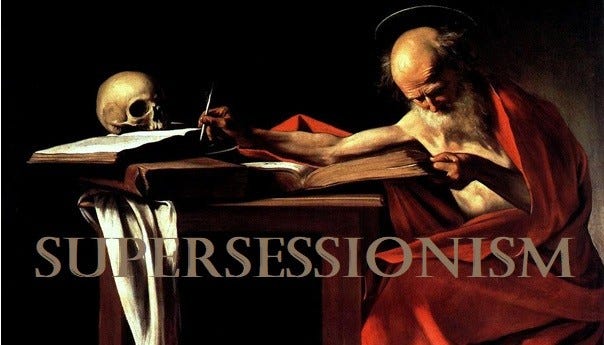Supersessionism References
Below are sources that support the perspective provided related to the concept of supersessionism (replacement theology) and the belief held by some Christian churches that the Church has replaced Israel in end-times prophecy. These sources include theological discussions, academic articles, and denominational perspectives, ensuring a robust foundation for the claims made. Each source is relevant to the theological concepts, scriptural interpretations, or debates surrounding supersessionism and eschatology.
1. **Soulen, R. Kendall. *The God of Israel and Christian Theology*. Minneapolis: Fortress Press, 1996.**
- This book provides a comprehensive analysis of supersessionism, explaining how some Christian theologians interpret the Church as the fulfillment of Israel’s covenantal promises. Soulen discusses the historical development of replacement theology and its implications for eschatology, particularly in mainline Protestant and Catholic thought.
- Relevant to: Supersessionism and the view that the Church inherits Israel’s promises.
2. **Vlach, Michael J. “The Church as a Replacement of Israel: An Analysis of Supersessionism.” *The Master’s Seminary Journal* 20, no. 1 (Spring 2009): 57–69.**
- This academic article defines supersessionism and outlines its prevalence in certain Christian traditions, including interpretations of Romans 11 and Galatians 3:28-29 that support the Church’s role as the “new Israel.” It also contrasts this with dispensationalist views, highlighting the theological debate.
- Available at: https://www.tms.edu/m/tmsj20c.pdf
- Relevant to: Scriptural basis (Romans 11, Galatians 3:28-29) and theological debates.
3. **Wilson, Marvin R. *Our Father Abraham: Jewish Roots of the Christian Faith*. Grand Rapids: Eerdmans, 1989.**
- Wilson explores the relationship between Judaism and Christianity, addressing supersessionist views in some Christian denominations that see the Church as the spiritual heir of Israel’s promises, including in eschatological contexts. The book provides historical and biblical insights into this theology.
- Relevant to: The Church as the fulfillment of Old Testament promises.
4. **Catholic Answers: “What is Replacement Theology?” (Published 2020)**
- This article explains the Catholic perspective on supersessionism, noting that some Catholic theologians historically viewed the Church as fulfilling Israel’s role, though modern Catholicism often emphasizes continuity with Judaism. Romans 11 is cited as a key text in this discussion.
- Available at: https://www.catholic.com/qa/what-is-replacement-theology
- Relevant to: Catholic theological perspectives on the Church replacing Israel.
5. **Berkhof, Louis. *Systematic Theology*. Grand Rapids: Eerdmans, 1996 (originally published 1938).**
- A classic Reformed theology text, Berkhof articulates the view held by some Protestant denominations (e.g., Reformed and Presbyterian) that the Church is the “true Israel” in God’s redemptive plan, with Old Testament promises applied spiritually to believers.
- Relevant to: Mainline Protestant views on the Church in eschatology.
6. **Holwerda, David E. *Jesus and Israel: One Covenant or Two?*. Grand Rapids: Eerdmans, 1995.**
- This book examines the theological debate over Israel’s role in salvation history, with some chapters addressing supersessionist interpretations that prioritize the Church in end-times prophecy, drawing on Galatians and Romans.
- Relevant to: Scriptural interpretations supporting replacement theology.
7. **The Presbyterian Church (USA): “A Theological Understanding of the Relationship Between Christians and Jews” (1987)**
- This denominational statement reflects a supersessionist-leaning perspective, suggesting that the Church fulfills Israel’s covenantal role, though it avoids explicit end-times language. It represents mainline Protestant thought on the topic.
- Available at: https://www.pcusa.org/resource/theological-understanding-relationship-between-christians-and-jews/
- Relevant to: Mainline Protestant denominational views.
8. **Wright, N.T. *Paul and the Faithfulness of God*. Minneapolis: Fortress Press, 2013.**
- Renowned theologian N.T. Wright interprets Romans 11 and Galatians to argue that God’s covenant is fulfilled through Christ and the Church, a view aligned with modified supersessionism. He downplays the prophetic significance of modern Israel in eschatology.
- Relevant to: Scriptural basis and modern theological perspectives.
9. **Christianity Today: “Supersessionism: Why Some Christians See the Church as Replacing Israel” (Published October 15, 2020)**
- This article provides an overview of replacement theology, citing its roots in early Christian thought and its persistence in some Protestant and Catholic circles, with references to Galatians 3:28-29 and the debate over Israel’s role in prophecy.
- Available at: https://www.christianitytoday.com/ct/2020/october-web-only/supersessionism-church-replacing-israel.html
- Relevant to: Historical and contemporary supersessionist views.
10. **Grenz, Stanley J. *Theology for the Community of God*. Grand Rapids: Eerdmans, 2000.**
- Grenz, a prominent evangelical theologian, discusses the Church’s role as the people of God in Reformed theology, often interpreting Old Testament promises as spiritually fulfilled in the Church, impacting views on end-times prophecy.
- Relevant to: Protestant theological framework for the Church’s role.
**Notes:**
- These sources collectively address the theological basis (e.g., Romans 11, Galatians 3:28-29), historical context, and denominational perspectives (e.g., Reformed, Catholic) of supersessionism, as well as its implications for end-times prophecy.
- Some sources (e.g., Vlach) are critical of supersessionism, providing balance by highlighting dispensationalist counterarguments, which aligns with the paragraph’s mention of theological debates.
- Web-based sources like Catholic Answers and Christianity Today are accessible for general readers, while academic works like Soulen and Wright offer deeper theological analysis.




